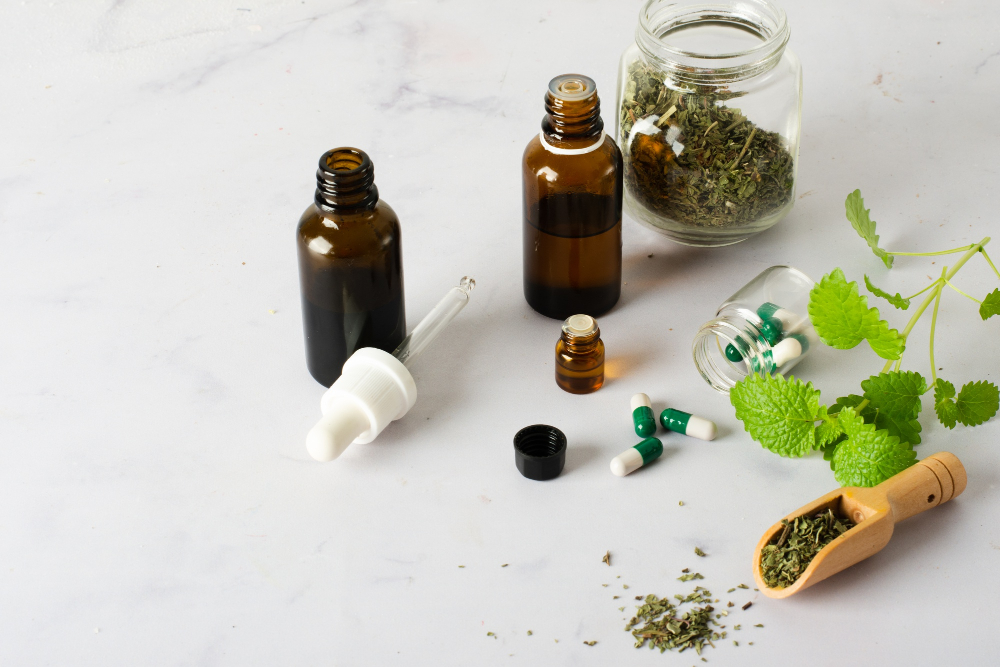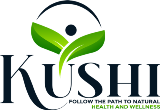

Herbal Dietary Supplements: Types, Uses, and Safety
Herbal Dietary Supplements: Types, Uses, and Safety
Exploring the world of herbal dietary supplements opens the door to a wide range of natural products. These supplements are made from plants and plant extracts, often used to support overall wellness. Herbal dietary supplements may come in the form of teas, capsules, powders, or tinctures. Each product may serve a unique purpose, such as boosting energy, improving digestion, or supporting immunity.
Some common herbal dietary supplements include echinacea, ginseng, turmeric, and St. John’s wort. It’s important to note that while herbal dietary supplements are natural, they still come with potential side effects or interactions. Understanding how herbal dietary supplements work helps users make more informed choices. With proper guidance, herbal dietary supplements can be a helpful part of a balanced wellness plan.
Understanding Herbal Dietary Supplements
Herbal supplements have become an integral part of many individuals’ health routines, representing a significant segment of the dietary supplement market. These products are often sought for their perceived natural qualities and potential to support overall well-being. Understanding their core definitions and categories is the first step toward discerning their appropriate use and potential benefits.
Definition of Herbal Dietary Supplements
Herbal dietary supplements use plants or botanicals to support the diet and improve health. Unlike prescription drugs, the Food and Drug Administration (FDA) does not regulate these products in the same way as conventional medicine. The FDA does not approve herbal supplements for treating specific diseases, instead regulating them as a special category of food, meaning supplement companies are responsible for their safety and effectiveness before marketing. It’s crucial to consult a pharmacist or healthcare provider before you take dietary supplements, especially if you have pre-existing health conditions.
Types of Herbal Supplements
There is a diverse list of types of herbal supplements, categorized by their form, the part of the plant used, or their intended health benefit. Some common forms include capsules, tablets, teas, and liquid extracts. Different supplements may focus on specific health conditions, such as immune support, digestive health, or mood enhancement. It’s important to differentiate between general wellness supplements and those marketed for particular therapeutic effects, as this often dictates the specific herbs and supplements included in their formulation. Complementary medicine often incorporates these types of natural health products.
Common Herbs Used in Supplements
Many popular herbal supplements feature well-known botanical ingredients. For instance, St. John’s Wort is frequently used for mood support, although it can increase the risk of side effects with certain medications. Other top herbs include ginseng for energy, echinacea for immune support, and turmeric for its anti-inflammatory properties. The National Center for Complementary and Integrative Health (NCCIH), along with the Office of Dietary Supplements (ODS) website, provides valuable information on the safety and effectiveness of many common herbs used in supplements, helping consumers make informed choices before they buy these products.
Benefits of Using Dietary Supplements
Dietary supplements, particularly those derived from herbal sources, offer a wide array of potential benefits that contribute to overall health and wellness. While not intended to cure or treat diseases, many individuals choose to take dietary supplements to complement their diet and address specific health concerns. The best herbal supplements are often rich in beneficial compounds that can support various bodily functions, contributing to improved well-being and vitality. It’s crucial, however, to understand that the perceived benefits must be weighed against the potential risks and side effects, making informed choices essential.
Health Benefits of Herbal Supplements
Herbal supplements are often sought after for their diverse health benefits, which can range from supporting immune function to enhancing cognitive performance. Many herbal products contain antioxidants, anti-inflammatory compounds, and other bioactive substances that contribute to these positive effects. For example, some people use herbal remedies to manage stress, improve sleep quality, or support digestive health. The specific benefits depend on the type of herbal supplement and the botanical ingredients it contains. While anecdotal evidence is plentiful, consumers should look for supplements that have some scientific backing for their claimed health benefits.
Herbal Supplements in Traditional Medicine
Herbal supplements have a long and rich history of use in traditional medicine systems worldwide. From ancient Chinese medicine to Ayurvedic practices, herbal medicine has been central to healing and wellness for centuries. These traditional systems often emphasize the holistic balance of the body and utilize a wide list of herbs and supplements to address imbalances and promote health. The knowledge passed down through generations in these traditions often highlights the intricate relationship between plants and human health, influencing the development of many modern herbal products available today. Many top herbal supplements sold now have roots in these age-old practices.
Evidence Supporting Supplement Use
While the Food and Drug Administration (FDA) does not approve herbal supplements in the same way it does prescription drugs, there is a growing body of scientific evidence supporting the safety and effectiveness of certain herbal products. Research conducted by institutions like the National Center for Complementary and Integrative Health (NCCIH) and information provided by the Office of Dietary Supplements website can offer valuable insights into specific herbal supplements. Consumers looking to buy these products should review available research and consult with a healthcare provider, such as a pharmacist, to determine if a particular supplement is appropriate for their health conditions and to understand any potential risks of bleeding or other side effects. This cautious approach helps ensure that dietary supplement use is both beneficial and safe.
Safety and Regulation of Herbal Supplements
Ensuring the safety and effectiveness of herbal supplements is paramount for consumers, given their widespread availability and diverse range of uses. Unlike conventional medicine, the regulatory framework for these products differs significantly, placing a greater onus on consumers to understand labeling, potential risks, and the role of oversight bodies like the Food and Drug Administration (FDA). Navigating this landscape requires informed decision-making to mitigate potential harms and maximize the intended health benefits of these botanical products.
FDA Regulations on Dietary Supplements
The Food and Drug Administration (FDA) regulates herbal supplements under a different set of rules than prescription drugs, categorizing them as a type of food rather than medicine. This means that, unlike pharmaceuticals, the FDA does not approve herbal supplements for safety and effectiveness before they are marketed. Instead, supplement companies are primarily responsible for ensuring their herbal products are safe and accurately labeled before consumers buy them. While the FDA can take action against unsafe dietary supplement products after they are on the market, this pre-market approval distinction is crucial for understanding the regulatory landscape. Consumers should be aware that the FDA does not approve many common herbal supplements, and therefore, the onus is on the manufacturer to ensure the product’s safety.
Understanding Supplement Labels
A comprehensive understanding of the supplement label is essential for any individual considering taking dietary supplements. These labels provide critical information, including the active botanical ingredients, recommended dosage, and potential warnings or contraindications. Consumers should carefully examine the list of ingredients to ensure they are not allergic to any component and to verify the purity of the herbal supplement. A clear dietary supplement label should also indicate whether the product is standardized, meaning it contains a consistent amount of the active compound, which can impact its effectiveness. Furthermore, consulting a pharmacist or healthcare provider to interpret complex information on different supplements can help mitigate the risk of adverse reactions or interactions with other medications, thus promoting overall health.
Risks and Side Effects of Herbal Supplements
While many herbal products are generally considered safe, there are significant risks and side effects associated with their use, particularly when individuals take herbal supplements without proper guidance. These risks can include adverse interactions with prescription medications, an increased risk of bleeding, or severe allergic reactions. For instance, some herbal supplements may be unsafe for individuals with specific health conditions or those undergoing certain medical treatments. The National Center for Complementary and Integrative Health (NCCIH) and the Office of Dietary Supplements website provide valuable information regarding potential risks and side effects, emphasizing that even “natural” does not always equate to “safe.” Always discuss with a healthcare professional before you use dietary supplements, especially if you plan to combine herbs and supplements with conventional medicine, to ensure your dietary supplement use is both beneficial and safe.
How to Take Herbal Supplements Safely
Guidelines for Using Herbal Dietary Supplements
To maximize the potential benefits and minimize risks, it is crucial to adhere to specific guidelines when you take herbal dietary supplements. Always follow the recommended dosage on the supplement label, and avoid the temptation to increase it, as this can increase the risk of adverse effects. It is also important to consider the duration of use; some herbal supplements are intended for short-term use, while others can be taken for longer periods under professional guidance. Pay attention to how your body reacts to the herbal products and discontinue use if you experience any unusual symptoms, always prioritizing your overall health.
Consulting Healthcare Professionals
Before incorporating any new herbal supplement into your regimen, consulting a healthcare professional is paramount. A pharmacist, doctor, or a practitioner specializing in complementary medicine can provide personalized advice based on your current health conditions, existing medications, and overall health goals. They can help you understand potential interactions between herbs and supplements and conventional medicine, and whether a particular herbal supplement is the best choice for you. This expert guidance is essential to ensure that your dietary supplement use is safe and effective, especially if you have pre-existing health issues or are pregnant or breastfeeding.
Avoiding Unsafe Herbal Products
The market is flooded with various types of herbal supplements, and not all herbal products are safe or effective. To avoid unsafe herbal products, always research the supplement companies and look for products that have been third-party tested for purity and potency. Be wary of any dietary supplement that makes exaggerated claims of curing diseases, as the FDA does not approve herbal supplements for such purposes. Furthermore, be cautious of supplements sold outside reputable sources, as they may contain contaminants or undeclared ingredients that can be unsafe. Prioritizing quality and transparency in your selection of herbal supplements is key to safeguarding your health.
Buying Herbal Supplements
Where to Purchase Quality Supplements
When you decide to buy herbal supplements, the source of purchase significantly impacts the quality and safety of the product. Reputable health food stores, pharmacies, and trusted online retailers specializing in natural health products are generally the best places to find quality dietary supplements. These outlets often stock brands that adhere to good manufacturing practices and provide detailed information on their supplement label. Avoiding informal markets or unverified online sellers is crucial, as the authenticity and purity of herbal products from such sources can be questionable, increasing the risk of ineffective or contaminated supplements.
Evaluating Supplement Brands
Evaluating supplement brands requires careful attention to several factors to ensure you are selecting the best herbal supplements for your health. Look for brands that have a strong reputation for quality control, transparency in their sourcing of botanical ingredients, and readily available information regarding their manufacturing processes. Certifications from independent organizations that test for purity, potency, and contaminants can also be a strong indicator of a trustworthy brand. Additionally, read reviews and consult with healthcare professionals, such as a pharmacist, to get recommendations on top herbal supplement brands that prioritize safety and effectiveness. This due diligence helps you navigate the vast list of available options.
National Center for Complementary and Integrative Health Resources
For individuals seeking reliable information on herbal medicine and dietary supplements, the National Center for Complementary and Integrative Health (NCCIH) is an invaluable resource. The NCCIH, part of the National Institutes of Health, provides evidence-based information on various types of herbal supplements, their potential benefits, and known risks and side effects. Their website offers comprehensive fact sheets, research summaries, and consumer health information that can help you make informed decisions about whether to use dietary supplements. Consulting the NCCIH can help clarify common misconceptions and guide you towards safe and effective herbal supplement use, ensuring you understand the true nature of what you choose to take.
Related Posts
Want to learn more?
Visit one of our 3 locations
Our staff is here to help! Looking for a specific herb or supplement? We got you covered. Need help finding a remedy for a problem you Have? No problem!
Stop on by and see for yourself why Kushi Health & Wellness is one of the top Natural Health Stores in the Carolinas.


